Portugal is officially called the Portuguese Republic. The official language and the main ethnic group are Portuguese. Portugal is located in southwestern Europe and most of its area is on the Iberian Peninsula. Portugal’s western and southern borders are covered by the Atlantic Ocean. Spain sits on its north and east borders. Portugal is one of the oldest nation-states in Europe. It has been continuously inhabited since prehistoric times.
Portugal has a Mediterranean climate over most of its area. The average temperature in the mainland varies between 46 and 53 degrees Fahrenheit in the mountains and between 60 and 68 degrees in the south. The Guadiana basin has some of the highest temperatures of well over 100 degrees in the summer. Portugal is known for its beautiful beaches like Marinha Beach in Lagoa. Portugal is also home to a mature Mediterranean forest, which is a very rare natural landform.
Explore the destinations of Portugal
The destinations in Portugal are wonderfully diverse. In addition to interesting large cities you can find beautiful almost untouched regions.
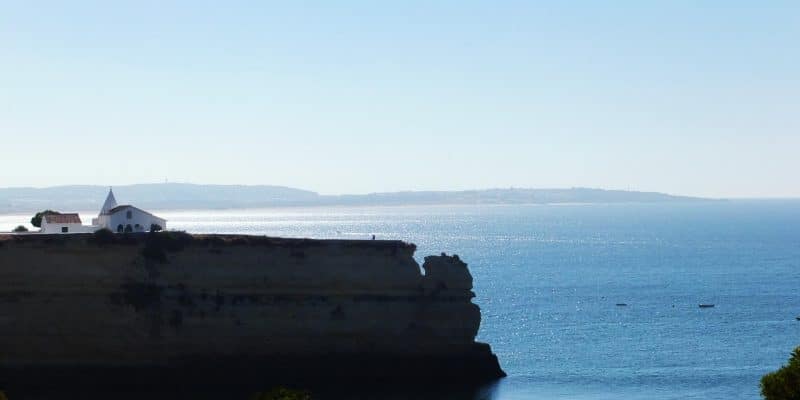
The southern region of Portugal is the Algarve holiday region. It is surrounded by the Atlantic Ocean, bordering Spain to the east and the Alentejo region to the north.
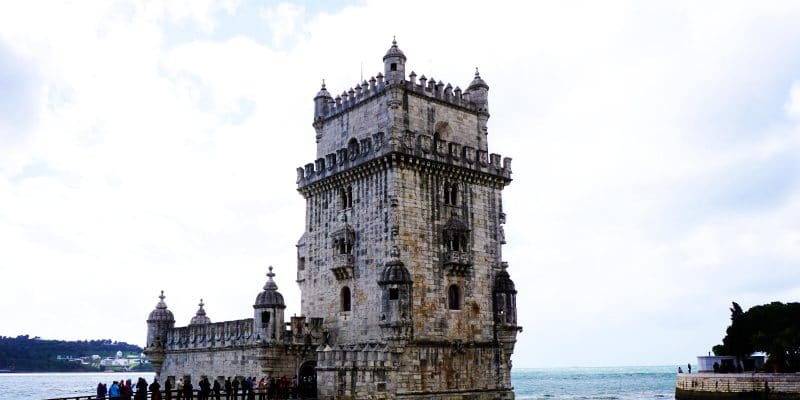
Lisbon is the capital of Portugal, a large colorful metropolis with a multicultural society. A city trip to Lisbon is one of the most beautiful destinations you can visit.
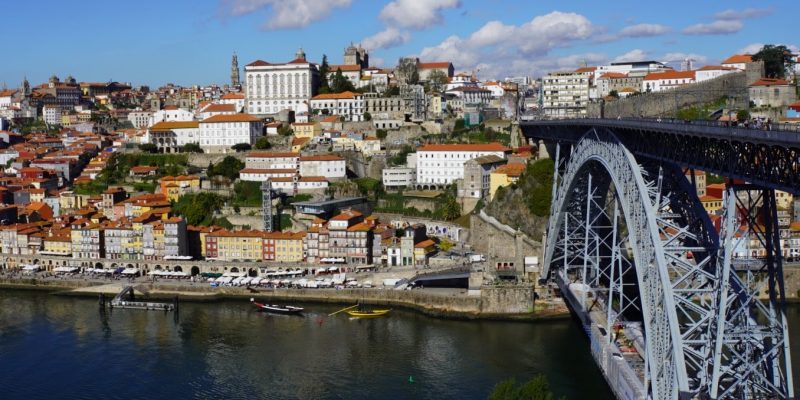
Porto is the second largest city in Portugal after Lisbon and attracts its visitors with narrow old town streets, parks, impressive buildings and, of course, port wine.
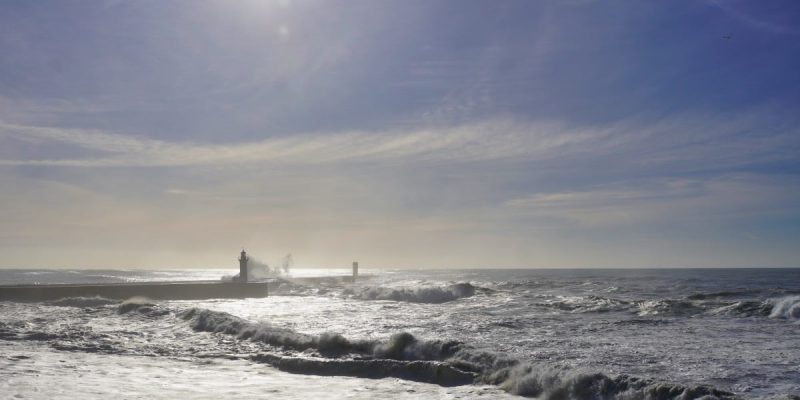
Portugal is divided into different regions. The Northern Region or Região do Norte is located in the north of the country and is the most populous region of the country.
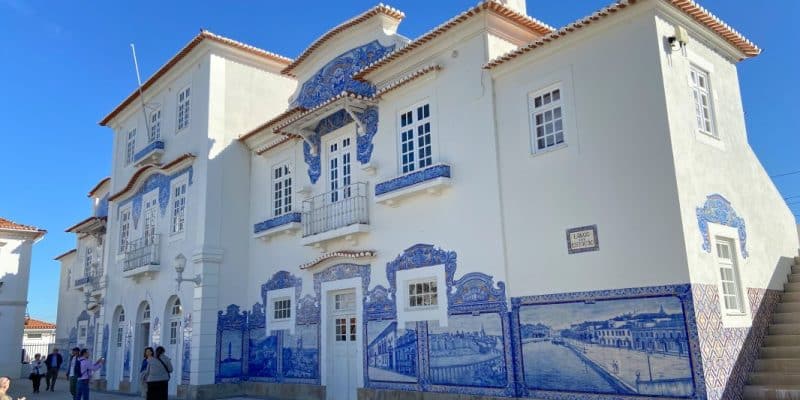
Located in the center of Portugal, the Região Centro is the heart of the country and offers interesting destinations for every vacationer. It includes eight sub-regions and It includes eight sub-regions and forms the transition from the green north to the cultural center in Lisbon.
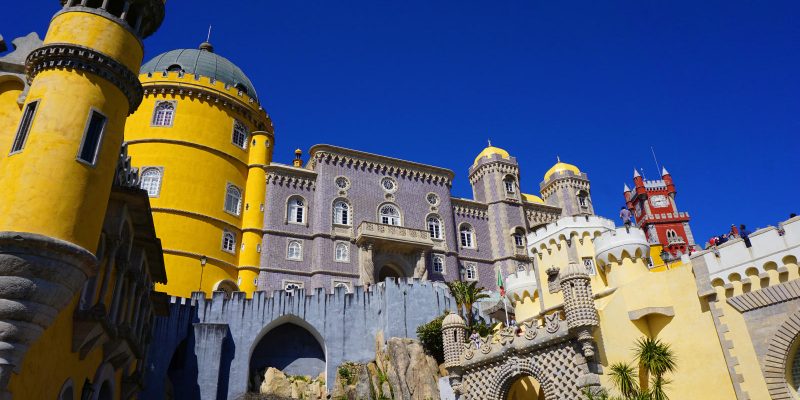
Sintra is located only about 25 kilometers from Lisbon. The cultural landscape of Sintra is a UNESCO World Heritage Site. The destinations in Sintra are really recommended for a day trip from Lisbon.
Travel information
Arrival
By car
If you travel to Portugal by car, you have to pass through Spain first.
Attention: There is a toll system in Portugal!
By plane
There are numerous scheduled flights to the major airports in Porto, Lisbon. Many charter flights land in Faro for vacationers in the Algarve region.
The Azores and Madeira, which belong to Portugal, have their own airports.
By train
There are only a few connecting routes to Spain. From the east there is a line from Madrid and Salamanca to Coimbra. From Galicia there is one train in the morning and one in the evening from Vigo to Porto.
By ship
You can reach Portugal directly with several shipping companies, for example from Genoa, Tenerife or from the USA.
Entry regulations
German citizens need a valid passport/identity card for air travel to and from Portugal. These are also required for entry.
Best time to travel
Main travel seasons for Portugal are spring and summer, when it is warm almost everywhere. In midsummer it is hot and dry. Winters in Portugal are mostly mild and rainy, it is cooler inland than on the coast.
On the way in …
By car
The major cities can be easily reached by freeways and trunk roads. The highways are mostly toll roads.
Smaller secondary roads are often in poorer condition.
In Portugal, the following traffic rules apply, among others:
- Freeway: 120 km/h (caravans 100 km/h).
- Country road: 90 km/h
- City: 50 km/h
- Driving license newcomers (< 1 year) are allowed to drive maximum 90 km/h on the highway
By train
There are two providers requiring reservations in domestic long-distance transport: Alfa Pendular and Intercidades.
Toll
The system is difficult and complicated.
There are several ways to pay the toll. It depends on the route used.
For example, the Algarve motorway between Lagos and Castro Marim – marked “electronic toll only” – here you have to pre-book and pay for the toll control online with number plate registration.
You can also rent electronic devices that can be recharged with money for a certain period of time at border posts or rest stops. However, these devices can only be returned at the rental location.
There are also payment options in cash or with credit cards.
Language
The official language is Portuguese. In the holiday regions you can communicate very well with English.
Money
Portugal is one of the countries where payment is made with the euro.
Plug
German travellers do not need a travel adapter for a holiday in Portugal. Type C and F plugs are used in the country.
Tip
In Portugal, tipping in restaurants is 10-15% of the bill.
In taxis, the guest is not necessarily expected to round up the amount, but the small acknowledgement is welcome.
Hotel staff are also happy to accept a few coins, about one euro per night or per room order.